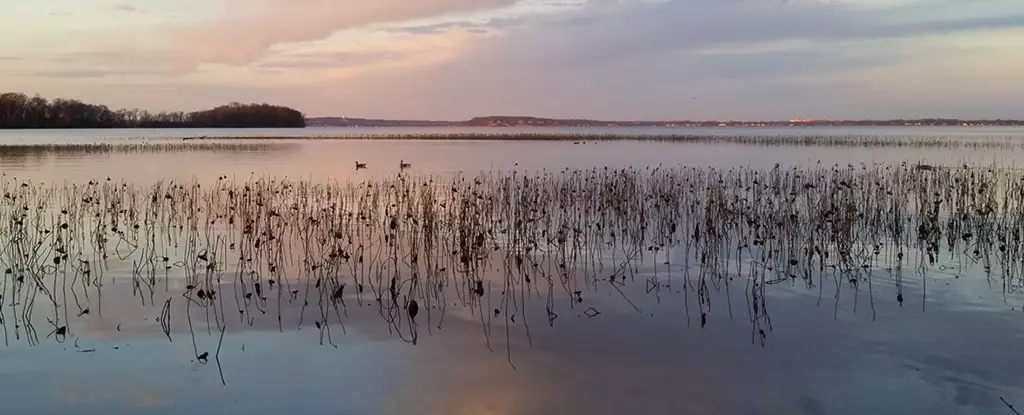Lake Mendota in Wisconsin serves as a vibrant testament to nature’s power, demonstrating how its microbial residents adapt and evolve in response to the cyclical seasons. During winter, the lake’s surface remains trapped beneath a harrowing layer of ice, while summer drapes it in a vivid blanket of algae. New research from the University of Texas at Austin dives into the intricate evolutionary dynamics of the bacteria that inhabit this fascinating ecosystem. Over 20 years, a meticulous analysis of 471 samples revealed a microcosm in which bacteria undergo rapid genetic changes, only to revert to original states as environmental conditions fluctuate with the seasons.
Under the guidance of prominent researchers, the study harnessed advanced genetic techniques to scrutinize a staggering 2,855 bacterial genomes. By observing this breadth of data across numerous seasons and years, the team unveiled a remarkable pattern: roughly 80 percent of the bacterial species studied underwent significant seasonal genetic shifts. This cyclical evolution resembles a video reel, playing through varied seasons before rewinding back to its prime; a phenomenon referred to as genetic looping. This level of insight starkly elevates our grasp of microbial resilience and adaptation within ecosystems.
Bacterial Dominance and its Challenges
As environmental conditions evolved, varying bacterial strains rose and fell in dominance throughout the changing seasons. Such sustainable adaptability becomes crucial in understanding ecological balance. Intriguingly, around 20 percent of the species examined displayed sustained genetic transformations, observed prominently during the summer of 2012—a season marked by higher-than-average temperatures and lower water levels. The environmental strains prompted noticeable shifts in nitrogen metabolism among bacteria, shedding light on how external climatic factors intensely influence microbial dynamics.
The research paradigm benefited significantly from the integration of supercomputing technology, which expedited the complex task of reconstructing metagenomes from the collected water samples. Utilizing this approach allowed researchers to delve deep into the DNA fragments corresponding to an extensive array of microbial inhabitants. Drawing an analogy, microbial ecologist Robin Rohwer likened each genomic sequence to sentences from various volumes, requiring a methodical process to identify the origins and context of each fragment—a meticulous reassembly echoing the complexity of ecological relationships.
The Interplay of Ecology and Evolution
The convergence of ecological dynamics and evolutionary patterns presents a compelling view of microbial life. As environmental disturbances from climate change ripple across seasonal norms—triggering atypical weather events—the implications for microbial communities run deep. Gaining knowledge on which bacterial strains are poised to flourish enables scientists to project the ecological consequences on carbon absorption capabilities of lakes and the overall integrity of aquatic food webs.
Implications for Future Research
This groundbreaking study embodies a paradigm shift in our understanding of microbial research, facilitating reflection on the intricate bonds between evolution and seasonal changes. Understanding these relationships is compellingly relevant in today’s world, particularly as climate change continues to challenge these ancient systems. As researchers investigate these dynamics further, insights gleaned from microbial behavior could lend perspectives crucial for environmental management and conservation strategies worldwide.
Lake Mendota’s microbial ecosystem showcases an evolutionary tapestry, intricate and responsive to the ever-shifting environment. Relay the findings of this study ignite a passionate dialogue surrounding the significance of microbial diversity and adaptability. As climate change escalates and impacts seasonal cycles globally, it is essential to deepen our comprehension of the intricate interplay between microbes and their environments. In essence, this research not only enhances scientific understanding but also primes us, as stewards of the planet, to take informed actions amidst a rapidly changing world. The continuing exploration of Lake Mendota’s microorganisms paves the way for unraveling the broader mysteries of evolution in nature, calling for sustained inquiry into the depths of microbial life.

